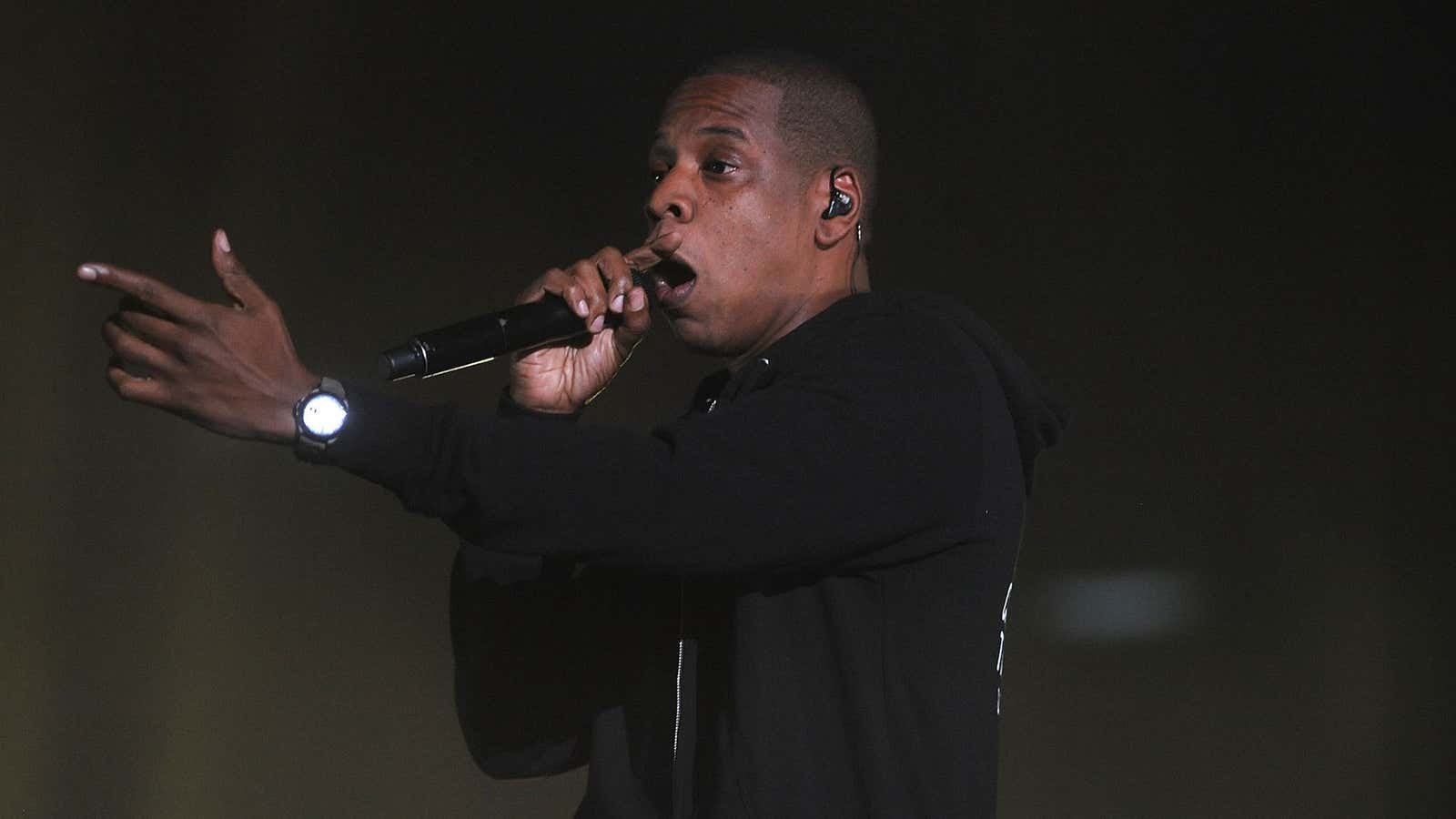Jay Z probably wasn’t expecting such a ferocious response to his plans for an artist-led streaming music service when he and other high profile owners relaunched Tidal, the company he bought for $54 million earlier this month.
But that’s how it has played out.
Here is a selection of some of the more noteworthy, eviscerating coverage:
- Influential music industry critic Bob Lefsetz pronounced Tidal “dead on arrival” because “people are CHEAP! They love their money more than their favorite artists”
- Techcrunch said that Tidal “Sounds Doomed“
- Stereogum bemoaned the “Half-Assed Hubris of Tidal“
- Gawker ridiculed the new service, arguing its celebrity owners “think you are willing to pay up to double the price of other streaming music services to pay for their streaming music service, because they are crazy.”
- In fairness, music industry bible Billboard (which was granted an exclusive interview with Jay-Z), described it as “promising”
As for Quartz, this writer has been hammering home the theme that streaming is a huge opportunity for the music industry for a while now.
Yet charging $10 a month for subscription-based music is hard enough. Charging double that, as Tidal wants to do, for a higher quality (lossless) sound tier that a lot of people can’t even distinguish, seems very optimistic.
Tidal is also offering a regular quality product for $10 a month. But unlike Spotify, it has no free ad-supported service. Spotify makes no secret of the fact that it owes its dominant position in streaming to its ad-supported service. 80% of its 15 million subscribers were previously users of the free service. Even though labels are trying to kill or amend the free option, Tidal won’t even have one, so there’s a real question about its ability to gain traction among users.
And then there is the fact that Tidal will also be competing against two of the world biggest tech companies, Apple and Google, who have mountains of cash to spend on music, which they both see as an adjunct to their core (devices and search advertising) businesses. In other words, music is a business they can run on a break even basis, or even at a loss, so long as it helps them sell phones or keep people inside their ecosystem.
Tidal’s key weapon in this war seems to be exclusivity—the idea that artists who own the service will release their own music on it first. How vigilant artists are going to be on this front (will they pull their music from YouTube, for example?) is an open question, however. And whether exclusivity will be enough to persuade mainstream consumers to subscribe is too.
Jay Z is a very smart guy, a model entrepreneur even. And it’s very early days in this story. So I’d be wary of writing him off already. But it’s safe to say that Tidal is going to test the limits of consumer demand for music, and its going to be fascinating to watch that unfold.
